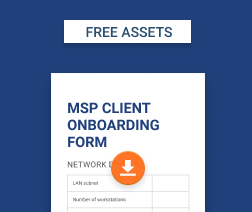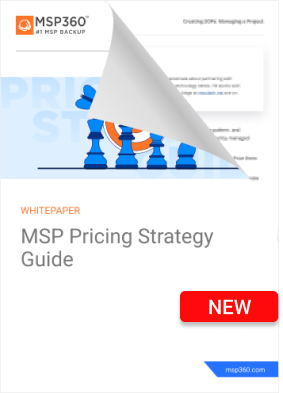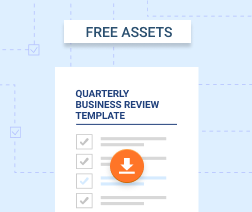Whether you’re meeting new prospects or dealing with existing customers, you’ll need to answer questions. From pricing to your overall business practices, clients will ask just about everything.
Let’s take a closer look at typical questions you’ll receive and how best to answer them.
Pricing Questions
We will begin with pricing. Sometimes customers/prospects will overlook your business processes and values and jump right to pricing. This can be challenging but makes sense from the standpoint that, if your pricing options don’t match up, it’s not a good fit.
With each one of these options, be mindful that any response could turn a prospect or customer away. Pricing is very tricky.
So, here’s a list of the most popular MSP pricing questions from prospects:
- What are your price options?
- What pricing model do you have?
- What exactly is included in this price?
- Can I prepay for support hours?
- Can I pay monthly/annually?
- Do you have special prices/discounts?
- How is billing organized?
The first part of what you should discuss are your pricing tiers and the differences between them. Your pricing tiers should be structured in an easy-to-understand format. If they are too complicated or have too many details, customers and prospects won’t understand them and will look elsewhere.
Another key aspect to cover is what is included in the price. Be specific about what is covered and what is not. This is useful to help your customers understand the terms. It pays off later down the road if there are questions or an issue comes up. The last thing you want is to be unclear in this regard.
The final key point is to discuss your billing system and how invoices are created. Every time I am onboarding a customer or in the initial phases of bringing a client in, they always ask me how the invoicing process works. Cover whether you have minimum charges, if you bill in increments, or if you provide block hours in your contract.
Further reading Guide to MSP Contracts
Security Questions
- How do you protect your premises?
- How will you protect my premises?
- How often do you run a full security audit?
- How do you store sensitive data, such as passwords?
- Do you have security training for clients/employees?
- What was the last security incident/data breach? How did you recover?
- Do you have an incident response plan/incident response team in place?
Security is of the utmost importance. Cybersecurity is on everyone’s mind. Every day, new vulnerabilities and data breaches are reported. Customers hear these news headlines and immediately get concerned. This being the case, be prepared to answer even the most outlandish questions about how hackers will get in and steal data.
Further reading Why Are Cybercriminals Targeting MSPs?
For a lot of customers, their data is the most crucial part of their business. Be prepared to answer questions from customers on where their data is stored and what is in place to protect it. Today, it is common for companies to use some form of cloud storage in addition to on-premises file servers. The physical location of the data is extremely important. If your client is leveraging a public cloud, you should know the exact location(s) and other details of how the data is stored.
In other words, what are the precautions? Here you’ll need to answer questions related to user access privileges, password protection and other, more technically sophisticated areas like encryption, key management and monitoring. Remember, if the client doesn’t fully trust you with their sensitive data, it won’t matter how many precautions the cloud vendor has taken.
Ensuring that only authorized staff are able to see a company’s data is imperative in securing a client’s trust in its MSP provider. With the amount of private information that a client will place into their cloud, they need to know that no one outside their company will ever be able to view it. They will also want to know the security measures of the MSP provider, as well as the cloud vendor.
Services and Service Quality Questions
- What exactly do you offer and what is out of scope?
- How do you stand out from the competition?
- Are any of the services you offer outsourced?
- Will you help me to purchase hardware/choose a cloud provider/etc.?
- Do you have a BCDR plan in place?
- What happens when my systems go down?
- Do you offer 24/7/365 support?
- Do I need to purchase additional services?
- What is the average issue resolution time?
Your MSP can have the most technical and capable employees but if you fail to provide quality service, your business will suffer.
To start with, being able to communicate exactly what services you offer should be one of your top priorities. The main reason for this is to confirm what is in or out of scope of your service offerings. Doing so will serve you well when you invoice customers. The last thing you want to do is explain what is in scope or out of scope when the client has an outstanding invoice.
Further reading MSP Packages: How to Build Your Offer
This also includes a clear understanding of what happens when services go down. I always recommend having some type of documentation that explains and shows a sequence of events that will happen should services go down. Customers will appreciate this level of service quality if the worst happens. This helps avoid scenarios where everyone is scrambling at the last second in a panic.
Often, MSPs will simply state the services they offer, without much thought. For example, managing workstations, patching, network support. In certain cases, customers and prospects might be talking to several MSPs and keep hearing the same thing over and over again. Try to shake things up and show you stand out among the crowd. Perhaps your helpdesk is staffed 24/7 and they always answer every call directly. Use this to your advantage when discussing your service and the quality you bring to the table. This can help you stand out where other MSPs are covering the basics that every MSP offers.
Further reading How to Turn Your MSP Prospects into Clients
At some point, clients and prospects will need hardware and software. Your service offerings should include a seamless purchasing experience. Some firms outsource this to other vendors and resell hardware and software.
Further reading MSP Software and Hardware Tools
Communication Questions
- Who should I call to resolve onsite issues?
- How do you keep customers updated?
- Will I be provided with a list of contacts?
- How do you communicate with clients?
- What happens if I call/email after hours?
- How is your onboarding/offboarding process organized?
Communication is essential to any MSP operation. Do not underestimate how crucial it is. Whether it’s email or via phone, your MSP needs to be able to communicate properly with your customers in order to be successful.
Onboarding is the perfect time to discuss and go over communication and how your customers can open tickets and get support. Key items for this are:
- Your main phone number
- Email for helpdesk or support tickets - typically support@msp.com
- Website support portal
- Emergency contact information (if different from the main number)
In addition to the items above, you must include other processes which make it clear to the customer how you communicate moving forward; these might be, for example, your monthly newsletters or marketing emails, quarterly business reviews, or useful links to your website that are beneficial to the customer.
This is helpful during the offboarding process as well. The communication process should be set up in such a way that the customer is removed from contact lists and newsletters, and from within your RMM software.
Use this form to get the information you need from your new client to onboard them properly. The pack includes:
- a ready-to-print PDF file
- an Excel file to help create a customizable document


Legal and Documentation Questions
- How do you document your procedures?
- How do you document and bill after hours?
- Do you have an SLA/MSA in place?
- What are the consequences of a data breach?
- Do you have a system of penalties?
- Do you support compliance frameworks?
As an MSP, you need to have proper and up-to-date documentation. Documenting your procedures assists the internal staff and can help your customers understand specific processes, but having other forms of documentation will further demonstrate your ability to provide quality service.
As a managed services provider, you need many legal documents that detail what you do and how your business is structured. One of the most important documents is the master services agreement, which covers the scope of work, services rendered, payment terms and processes you use with your customers.The most common items to include are the following:Statements of work that define the scope of the confidentiality guidelines
- Delivery requirements
- Geographic locations where work will be done
- Dispute resolution, should conflicts need to be resolved
- Intellectual property rights
- Payment terms and schedules
- The legal location (usually the state) where legal issues will be adjudicated
- Warranties, including what goods and services are covered and for what duration
- Work definitions, by which both parties agree what constitutes acceptable work
Further reading The Importance of Legal Services to MSPs
An SLA (Service Level Agreement) is different, in that it specifically covers your services and an acceptable timeline for when the customer can return to service or expect to return to service.
It’s a good idea while presenting these documents to walk your customer through a “worst-case scenario” to show where and how the items covered in your documentation come into play.
Business-Related Questions
- How can you help me reach my business goals?
- Do you have references/testimonials? How did you help your clients?
- How can the MSP optimize my business processes?
- How can I ensure the scalability of your services?
- Why do I need an MSP instead of an internal IT department?
- Do you educate customers on business-related topics?
- How do you ensure that your staff members possess all the crucial skills?
At the end of the day, customers and prospects want MSPs to assist in running their business. Your focus should be on how to use technology to improve their business.
There are several angles an MSP can explore, one of which is to reduce costs while running their business more efficiently. For example, they can save money by outsourcing IT to you, instead of hiring an entire department. It is especially difficult for smaller customers to hire a team that covers helpdesk, desktop support, and engineering, including 24/7 support.
Another major selling point that impacts your customers’ business is being proactive with your monitoring efforts. Monitoring devices, workstations, and servers 24/7 allows you to identify trends and take action before anything crashes. Ensuring that business operations continue to run without interruption is key to your customers’ business.
Further reading Why Businesses Should Invest in IT
One question I get asked quite frequently is: “My company is going to grow very rapidly over the next six months. Can you handle this and support us in the same fashion as you do today?” In these scenarios, I recommend reinforcing the fact that your MSP is a team of highly skilled professionals. Your staff can scale and grow with them. You take care of them for the long term.
As part of your marketing efforts, you should be continuously obtaining testimonials from existing clients. Having testimonials can ease concerns that you may not be able to support a rapidly growing client. For example, if you have a large customer, having a testimonial with their name on it can do wonders. Future prospects or current customers that are growing may see this and not question whether or not you can support them.
Conclusion
While no one has the answer to everything, proper preparation can assist your MSP greatly. We’ve covered a lot of ground to provide a well-rounded foundation of questions from pricing, security, service, communication, legal, and business. Use these examples to obtain a firm grasp of common questions and learn how your MSP can best answer them. Answering the questions customers or prospects have can lead to new opportunities or help you land a client.







